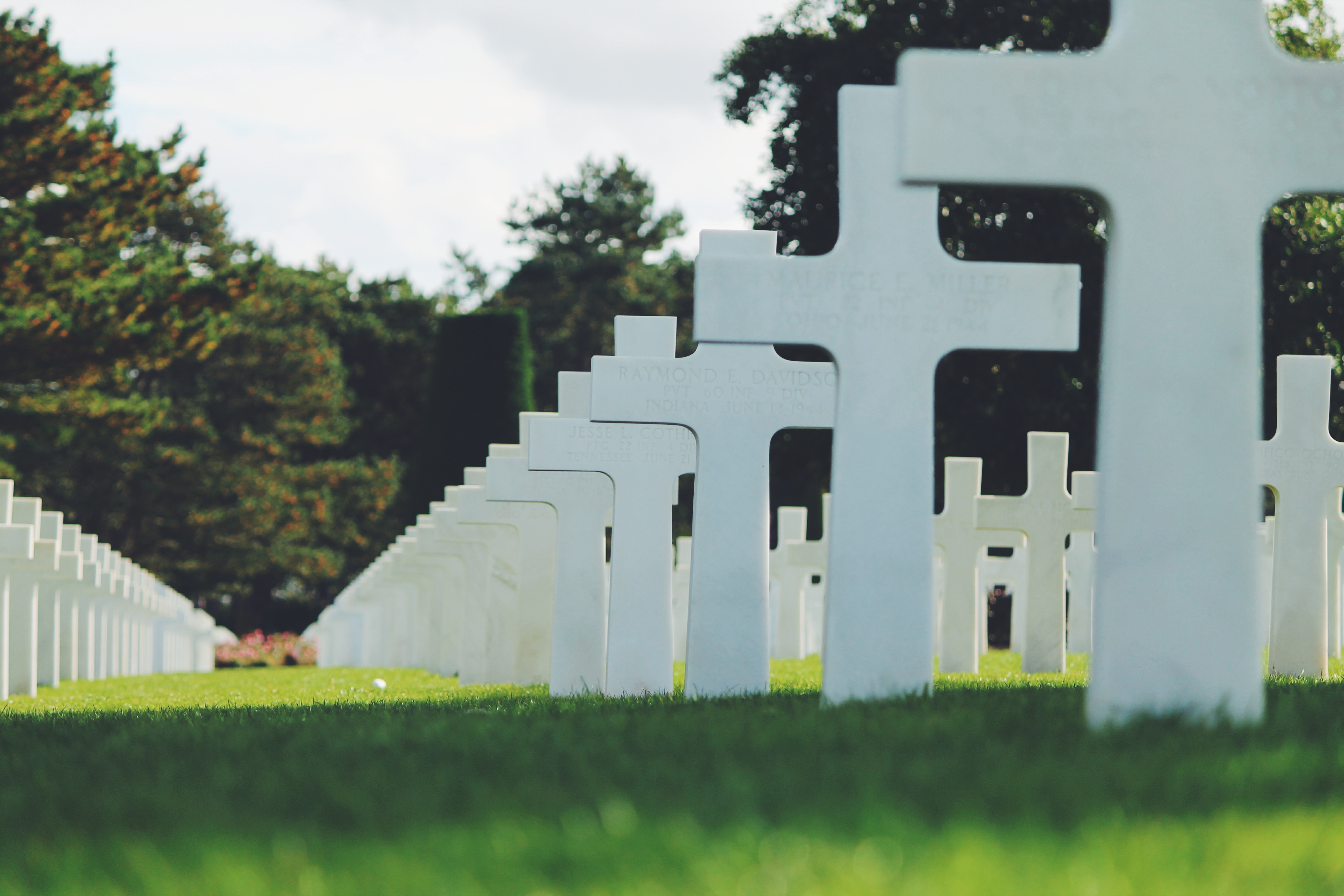
Memorial Day is here, and many see it as little more than the unofficial beginning of summer. The holiday was once marked by religious services, parades, and speeches nationwide. Now, however, some people do not even know what we are supposed to be remembering. That is why its proper observance is waning.
Some think we remember everyone who has died. Actually, the day was officially set aside as a day to remember those who have perished in the nation’s wars. We honor those whose lives were cruelly cut short for the sake of others. This is the highest of all sacrifices since, as the Gospel tells us, “greater love than this no man hath, that a man lay down his life for his friends” (Jn 15:13).
In remembering those who died, we recall much more than the simple names of the fallen. The national holiday speaks to us of three higher realities upon which we should reflect.
Recalling Fallen Humanity
Memorial Day speaks to us of our fallen humanity. By Original Sin, we are fallen, and so we will all die. This same fallen nature ensures that sin and discord will always occur in this vale of tears. Wars and battles will always be fought. Thus, soldiers will fall and die.
[like url=https://www.facebook.com/ReturnToOrder.org]
We can thus reflect upon our fallen condition and the existence of evil. We can take comfort in the fact that we have overcome many of the evils of the day in the battles of the past. These lives were not lost in vain, and thus it is fitting that their deeds not be forgotten. Nor should we forget the dark deeds of those who have succumbed to evil and shattered the peace.
By remembering the brave deeds of the fallen, we might also imitate their valor and sacrifices. We can also be mindful of the evil of which we are capable and must avoid.
Values Greater than Life Itself
Memorial Day speaks to us of values higher than life itself. We remember those who gave up their lives so that others might live. We can honor those high values, which led them to make the supreme sacrifice.
Many fallen soldiers held the good of the nation to be above the value of their lives. Others fell so that the remnants of Christian civilization might still survive. They opposed evil ideologies like radical Islam, Nazism and especially communism that threatened peace and freedom, and still threaten the world. They stood in the breach at a crucial time.
By remembering the values of the fallen, we challenge the shallow hedonistic and selfish values that today prevail. We call upon all to go beyond an attitude where people live only for themselves and their comforts.
What Does Saint Thomas Say About Immigration?
Buttressed by their courage, we can now make our commitment to continue the fight they began.
An Immortal Soul
Finally, Memorial Day speaks to us of our immortal destiny and God’s Providence. For if we do not have immortal souls, to what purpose do we recall the fallen? Life and history would have no meaning, and the fallen would be fleeting shadows with no final end.
However, our memory of the fallen reminds us of the Day of Judgment, that grand Memorial Day when all acts will be recalled, known and judged. We will then see where we fit in that impressive narrative of life that we call history.
In remembering those who died in battle, we are comforted by sensing the hand of Divine Providence that directs the course of the affairs of each person with purpose and benevolence. That same Providence also guides and provides for the affairs of families, societies, and nations. Thus, we are reminded of our own end. We are invited to see and confide in the designs of Providence.
What Does Saint Thomas Say About Marriage?
It is not surprising that the proper observance of Memorial Day is waning. The pace of modern life has quickened to where we do not have time to meditate on the past. The emphasis is upon the intemperance of the present, in which people want things instantly and effortlessly.
We do this at our peril. Recalling the past, helps us prepare better for the future. It helps us understand our role in history. It helps us remember that which should never be forgotten.
As seen on The Stream.


